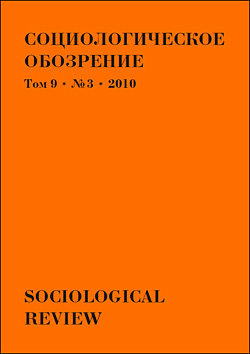Max Weber’s Theory of Rationalization
Keywords:
Max Weber, modernization, institutionalization of subsystems of purposive-rational action, selective pattern of societal rationalization, capitalist enterprise, protestant ethics
Abstract
The article is a translation into Russian of another piece of “Theory of Communicative Action” by J. Habermas. Habermas continues his critical examination of M. Weber’s theory of rationalization (see beginning in Vol. 8, № 3 and Vol. 9, № 1) by discerning in this third section the logic of Weberian analysis of modernization and showing that it is Weber’s initial point of analysis (institutionalization of subsystems of purposive-rational action in the forms of the capitalist enterprise and the modern governmental institution) that allows Weber to approach modernization as societal rationalization. Habermas argues that Weber’s analysis of modernization does not exhaust the explanatory potential of his own theory. If we call to mind the systematic construction that underlies the last (which Weber, according to Habermas, did not himself make), we will finally have to suggest that path of rationalization taken in Europe is just a particular historical form of rationalization which Weber, however, equates with rationalization of society as such.Downloads
Published
2011-03-05
How to Cite
ХабермасЮ., & ТягуноваТ. (2011). Max Weber’s Theory of Rationalization. Russian Sociological Review, 9(3), 3-25. Retrieved from https://cfjournal.hse.ru/index.php/sociologica/article/view/373
Issue
Section
Translations




